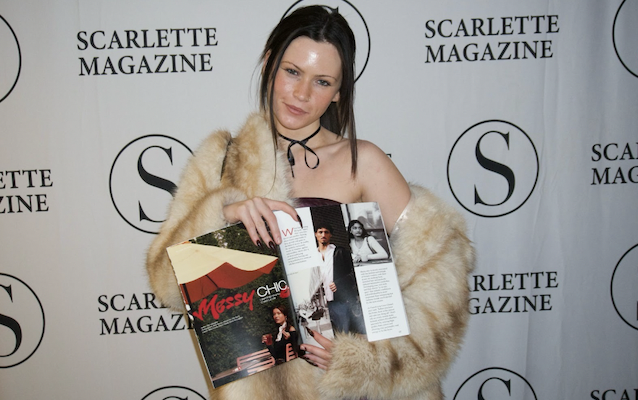
Sylvia Plath once wrote, “I felt my lungs inflate with the onrush of scenery — air, mountains, trees, people. I thought, ‘This is what it is to be happy.’”
If you have known nature — really breathed, lived and loved the outside world — you know what Plath meant when she wrote one of her most famous works, “The Bell Jar.”
The fact is, our beautiful world has been inspiring art and creation since the dawn of man. From the Greeks and Romans using constellations to write stories in the stars, to Claude Monet choosing the simple water lily as the “pièce de résistance” of his artistic journey in oil paintings, the growth and bloom of this world has never ceased to inspire.
The question remains; who do we have to thank for all of this? No matter what higher power you may turn to for the answer, there’s one that transcends the boundaries of religion or personal belief and her name is Mother Earth.
Since time immemorial, Mother Earth has been used to continuously justify the world we live in. With paintings like Joeseph Werner’s “Diana of Ephesus as Allegory of Nature,” and even something more well-known like Sandro Botticelli’s “The Birth of Venus,” the female form has been taken and portrayed as a leader of the natural world, and it’s not surprising why.
In art and media, the matriarch stands as a fierce guardian, a symbol of both strength and sanctuary. Ancient Greek legend whispers that Gaia, the first divine presence, rose from the depths of Chaos itself. She was the universe’s first heartbeat, and from her boundless spirit, all creation unfurled — earth, sky and life itself, each woven from her primordial essence.

According to the World History Encyclopedia, Gaia is considered “the supreme or mother goddess.” Given this truth, it’s no surprise that paintings, poetry, spoken tradition and more art forms have witnessed this amazing mother as an all-powerful form of protection, nurturing and growth.
Today, we may have left the name “Gaia” behind, but we still pay homage to our natural mother with a tradition as old as time.
According to the Oxford English Dictionary, the term “Mother Earth” was first used in the mid-1500s, by poet and translator George Turberville. Where the official noun came from, however, is largely meaningless when looking at the scope of our beautiful mother, and what she has done for us.
To harness her power, environmentalists today have taken the phrase “Mother Earth” and turned it into a technique meant to appeal and empower their listeners. In exchange for the protection she has given and growth she has inspired in all of us, environmental protection agencies and advocacy groups have been encouraging readers to “Love Your Mother” — a line straight out of the 1970s “Environmental Action Poster,” cataloged by students at the University of Michigan.
The term is as simple as it sounds, love the Earth as if she were your mother. When you think about it, she really is.
In the world of fashion, the industry has taken this newfound sustainability initiative by storm. With “Recycled Runways” leading the news cycles and so-called “slow fashion” — a new move towards slowing down the manufacturing process, that focuses on deliberate, renewable practices throughout manufacturing — making the rounds in shops across the nation, there is an intense shift in trends, both in production and consumption.

While speed used to be key, now the world of clothing is urging companies large and small to simply slow things down. When it comes to fair pay and labor, environmentally-friendly shipping practices and clean, sustainable fabrics, there’s no room for error.
In fact, giants in the world of fashion understand that the stakes are higher than ever. According to an article from Forbes Magazine, businesses aren’t working against the sustainability movement — instead, they’re changing with it.
While working hard to improve their “resilience, efficiency and profitability” — three notions that are always important for the success of a business — Forbes said commercialized fashion is beginning to understand the deep impacts of their actions and understand that making some changes might not be the end of the world. To put it simply, business is good for sustainability and sustainability is good for business.
Nothing rings more true in today’s political-eco-fashion-scape. While the world of fashion used to be completely separate from that of sustainability and eco-awareness, the two have now blissfully merged into one space, sensitivity and growth reigning supreme.
Just as no one can recreate the “Mona Lisa,” one simply cannot rebuild the fashion industry from the ground up. In the effort to reform and move forward, there’s one thing to keep in mind, the one who built all of this up for you deserves to be repaid.
Make her proud. Love your Mother.
Small Talk, Big Moves: The Journey of an Ethical Columbus Boutique
For a store named Small Talk, let me be the first to assure you — these two lovely owners, Suzanne Riska and Chloe Crites, do anything but talk “small.”
Full of energy, these two fashion-loving friends-turned-co-owners use their space in Clintonville, Ohio — located at 3337 N. High St. — as an opportunity to twist tongues, lay out limericks and profess pure poetry to their clients, making everyone feel not only beautiful in everything they try on, but also helping them feel heard in the store.
Clothing can be pretty intimidating. Figuring out your personal style, actually getting yourself to a store and trying things on, only to realize they don’t have your size; Forget it.
In creating their safe haven, Crites and Riska took their personal experiences — as well as their disappointments — to prevent customers from ever feeling like they didn’t belong, or weren’t meant to wear a certain piece or style.
Some brands aren’t size-inclusive, and this is something Crites said she knows well.

“People want more sizes in-store,” Crites said, harkening back to her trials and tribulations as a visual merchandiser. “I’m on the floor listening to people saying they want those sizes. You can’t say there’s no demand.”
This isn’t something that Crites and Riska only felt back in their old positions. It’s a core value that the pair said they’ve carried with them onto their new ventures in sustainability and ethicality.
“It’s ethically wrong, right?” Crites said. “Why don’t they want to cater to the most amount of customers possible? It just doesn’t make sense.”
The thing is, this marketing works like a charm. By being open, honest and more than anything, willing to speak their minds, Small Talk attracts customers that may have only been disappointed in larger retail markets.
Riska said their customers are “very surprised” to hear that their sizes, at minimum, stop at 2X, if not going up to 4X.
Not only are Riska and Crites sticking to their guns, but they’re also doing it all as sustainably as they possibly can, no matter how challenging it gets.
“Environmentally, we just want to know who [is] making it,” Riska said. “We do have power as a consumer. And I think knowing that what you are buying supported someone in their job, whether it was the farmer or the seamstress, it’s kind of like peace of mind.”
Admitting that they’re not perfect, the two co-owners said they’ve learned a lot throughout the process.
“We just try to reuse as much as possible,” Riska said. “We don’t even buy shipping boxes anymore.”
When it comes to their production, advertisement and most importantly, their retail wear, Riska and Crites said they pride themselves in being ecological pioneers. Since their opening in 2017, the two clothing connoisseurs have worked to make connections and build trust within the community, grown their partnerships and solidified their existence as a sustainable, ethical boutique — one that’s here to stay.
When asked what she’s most proud of, Crites said simply, “I’m proud that we’re here.” Faced with anything, the two are sure to power right on through, dancing through any storm that comes their way.
Read the Fall/Winter 2024 sustainability issue of Scarlette Magazine online at issuu.com.
SHOOT LEADS Katherine Gallaugher, Summer Neds, Olivia Schweinhagen / MODELS Reegan Davis, Jasmine Freeman, Lexi Korff, Sabrina Li, Meg Resweber / MAKEUP Mia Chan / CLOTHES PROVIDED BY Small Talk Shop


